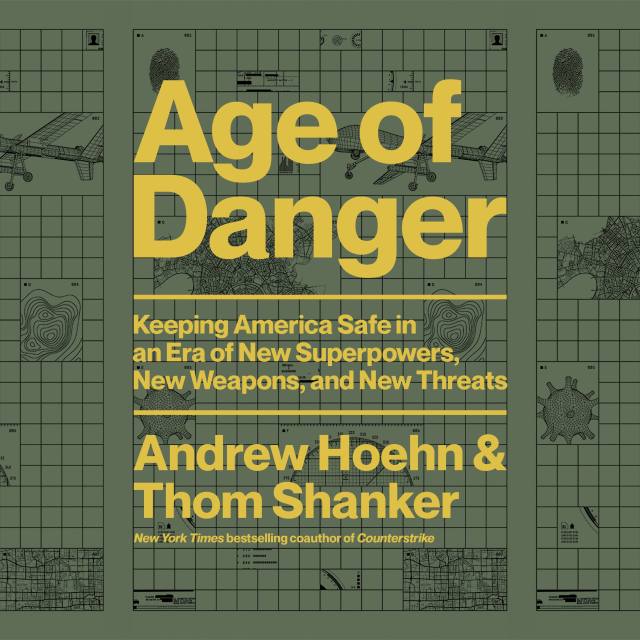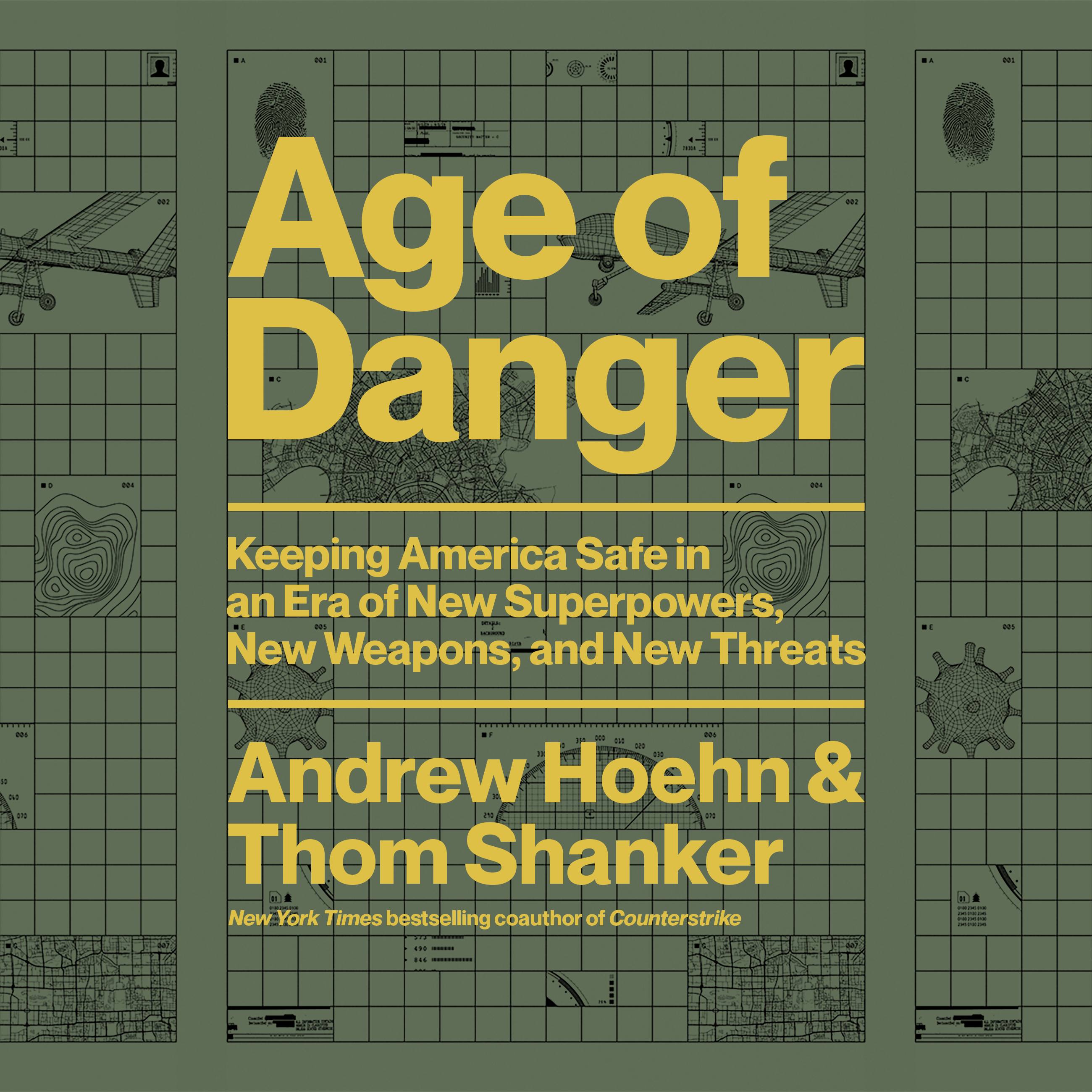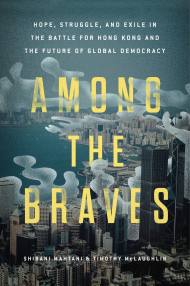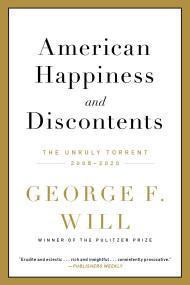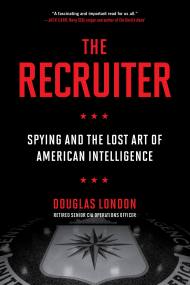Promotion
Use code CYBER2024 for 30% off sitewide + free shipping over $30
By clicking “Accept,” you agree to the use of cookies and similar technologies on your device as set forth in our Cookie Policy and our Privacy Policy. Please note that certain cookies are essential for this website to function properly and do not require user consent to be deployed.
Age of Danger
Keeping America Safe in an Era of New Superpowers, New Weapons, and New Threats
Contributors
By Andrew Hoehn
By Thom Shanker
Read by Eric Jason Martin
Formats and Prices
Price
$27.99Format
Format:
- Audiobook Download (Unabridged) $27.99
- ebook $15.99 $20.99 CAD
- Hardcover $30.00 $38.00 CAD
This item is a preorder. Your payment method will be charged immediately, and the product is expected to ship on or around May 9, 2023. This date is subject to change due to shipping delays beyond our control.
Also available from:
Again and again, American taxpayers are asked to open their wallets and pay for a national security machine that costs $1 trillion operate. Yet time and time again, the US government gets it wrong on critical issues. So what can be done? Enter bestselling author Thom Shanker and defense expert Andrew Hoehn. With decades of national security expertise between them and access to virtually every expert, they look at what’s going wrong in national security and how to make it go right.
Age of Danger looks at the major challenges facing America—from superpowers like Russia and China to emerging threats like pandemics, cybersecurity, climate change, and drones—and reimagines the national security apparatus into something that can truly keep Americans safe. Weaving together expert analysis with exclusive interviews from a new generation of national security leaders, Shanker and Hoehn argue that the United States must create an industrial-grade, life-saving machine out of a system that, for too long, was focused only on deterring adversaries and carrying out global military operations. It is a timely and crucial call to action—a call that if heeded, could save Americans lives, money, and our very future on the global stage.
-
“In the years after the 9/11 attacks, terrorism became the zoom-like focus of our government and military. Hoehn and Shanker make a powerful case that our national security leadership requires a more panoramic definition of what is a threat to the United States. Russia and China are back in view but other problems less so. National security has to include food security, climate security, disease security. They clearly define a new outlook, and the new set of institutional tools to manage the Age of Danger in which we find ourselves today.”Chuck Hagel, former Secretary of Defense, former U.S. Senator, Vietnam veteran
-
“Age of Danger makes a compelling case that we need to re-architect our national security processes and institutions to deal with the challenges of this new era, from great power competition to climate change and pandemics. Creative and thought-provoking, this book is a must read for students, policy practitioners and concerned citizens alike.”Michele Flournoy, former Under Secretary of Defense for Policy
-
“Tomorrow’s threats are likely to include Great Power competition, cyber, disease, and climate – and we are far from prepared to meet them. In this timely volume, two leading experts help us think through new approaches to tune up the vast machine of national security to make ourselves more secure. Time is of the essence!”Admiral James Stavridis, former NATO Supreme Allied Commander and author of 2034: A Novel of the Next World War
-
“Age of Danger leaves us with no excuses. The new, serious threats it describes demand our attention and, more importantly, our action. We are out of time for delay. This is a clear, direct, and understandable must-read for anyone concerned about the nation’s security.”William “Mac” Thornberry, former chairman of the House Armed Services Committee
-
“Admiral Bill Crowe used to say ‘At times like this, it’s important to remember there have always been times like this.’ That might have been true in the Admiral’s day, but, as Hoehn and Shanker point out in their gripping and persuasive book, we are now living in unprecedented times. Age of Danger makes a clear, rational, and urgent case for a significant reevaluation of our national security strategy.”Admiral Timothy J. Keating, former Commander, US Pacific Command and US Northern Command
-
“Our national security structures were built more than seventy years ago. They served us well over time, but, like an old car, there is only so much tinkering you can do. It’s time to put the old Chevy in the garage and build a modern national security machine. Hoehn and Shanker offer solutions on how to do it.”Nadia Schadlow, former Deputy National Security Advisor for Strategy
-
“Andy Hoehn and Thom Shanker provide an urgent wake-up call that the range of national security challenges facing the United States is both expanding and growing ever-more dangerous—and that we are not adequately prepared to address them. Until the US national security apparatus recognizes that “the future needs a seat at the table,” the United States and its people will face increasingly grave dangers from these new and deeply underestimated threats.”Nora Bensahel, Visiting Professor of Strategic Studies, The Johns Hopkins School of Advanced International Studies, and coauthor of Adaptation Under Fire: How Militaries Change in Wartime
-
"An instructive deep dive into a system that requires vast improvement efforts."Kirkus
-
"A knowledgeable and convincing tour of where and how America’s safeguards should be strengthened."Publishers Weekly
- On Sale
- May 9, 2023
- Publisher
- Hachette Audio
- ISBN-13
- 9781668625941
Newsletter Signup
By clicking ‘Sign Up,’ I acknowledge that I have read and agree to Hachette Book Group’s Privacy Policy and Terms of Use
